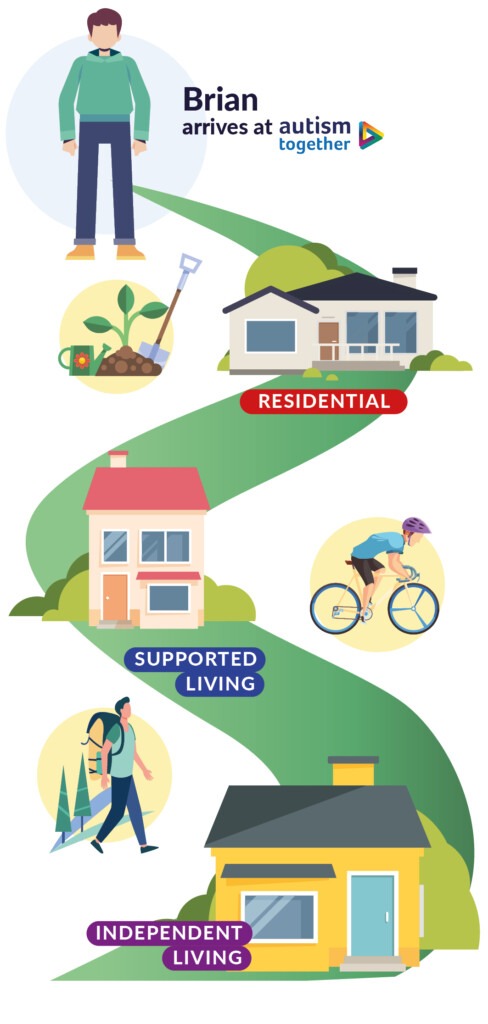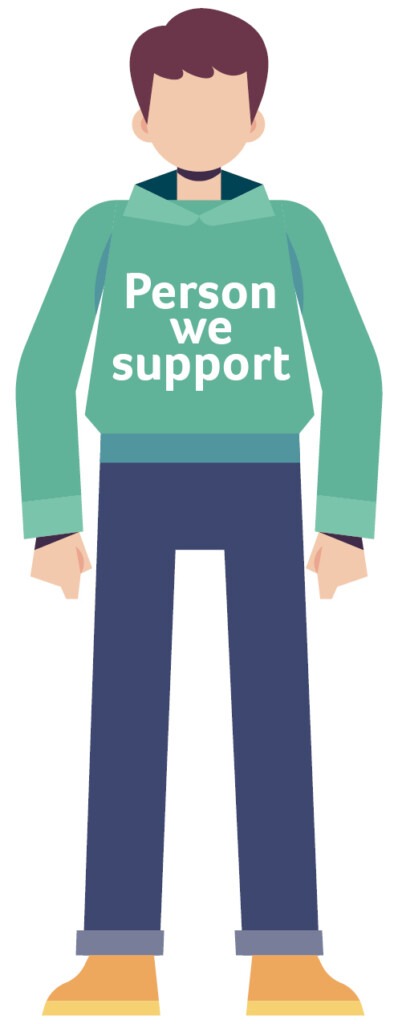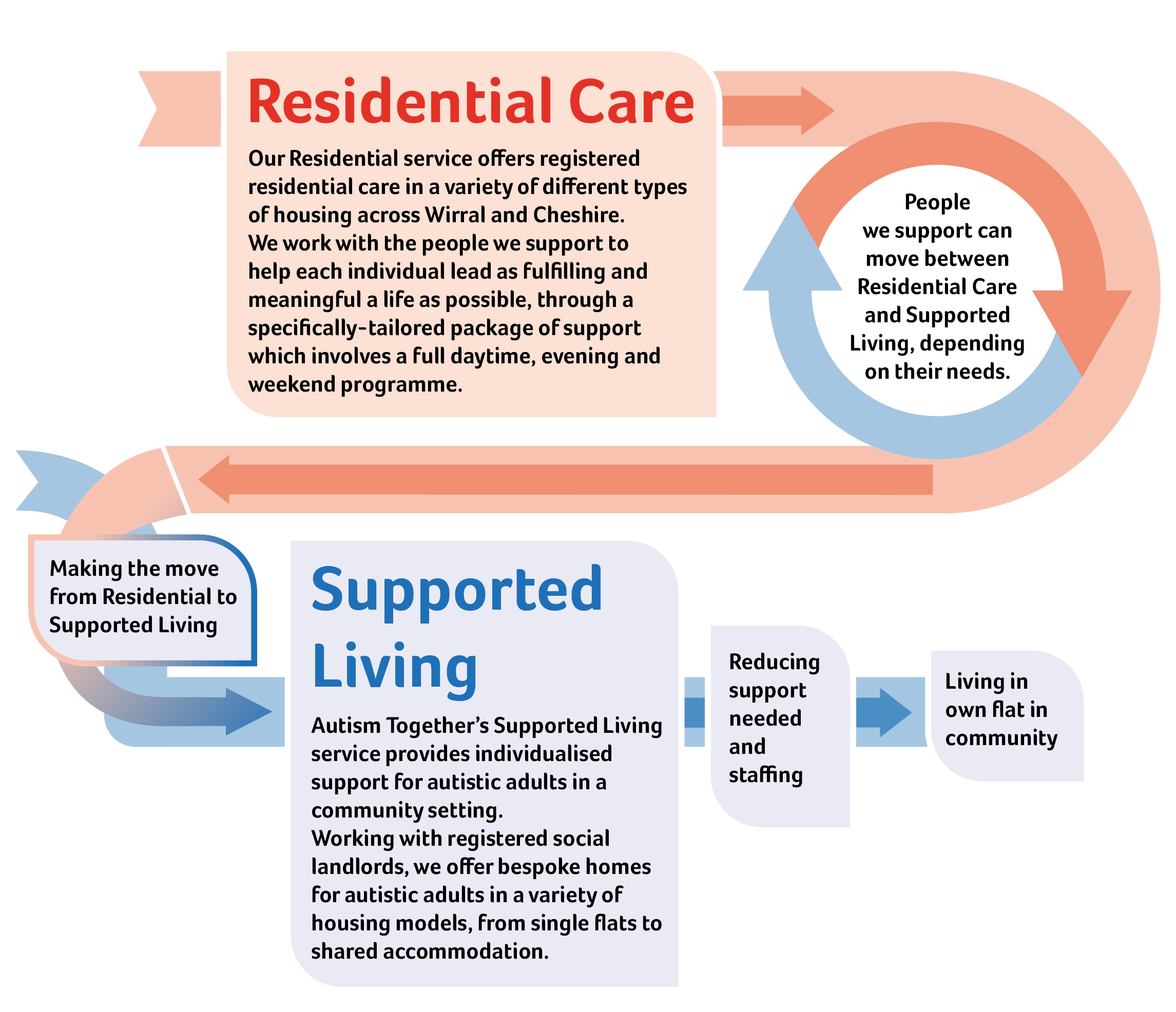Autism Together’s Support Journey
Joining autism together
Our staff are knowledgeable, experienced and ready to support autistic people right through their journey with Autism Together. Our team gets to know the person we are supporting, using a functional and ongoing assessment of their needs.
Following the assessment, we will recommend individually-tailored autism approaches to support the person, along with an appropriate placement, depending on their needs, in residential, supported living or day services.
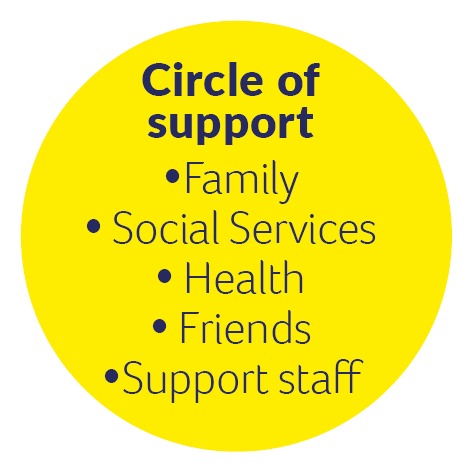
Joining autism together
Our staff are knowledgeable, experienced and ready to support autistic people right through their journey with Autism Together. Our team gets to know the person we are supporting, using a functional and ongoing assessment of their needs.
Following the assessment, we will recommend individually-tailored autism approaches to support the person, along with an appropriate placement, depending on their needs, in residential, supported living or day services.
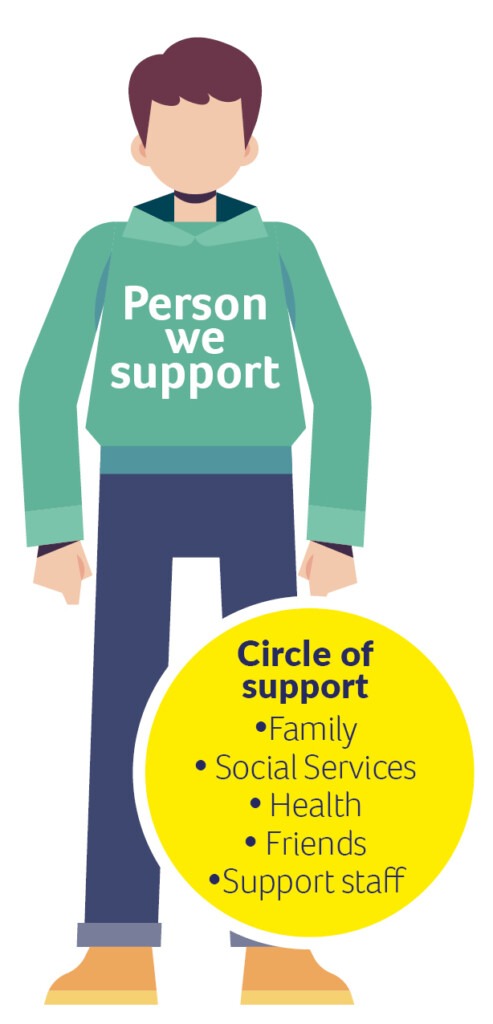
Right support, Right time, Right location
Right support
Right support
Right time
Right time
Right location
Right location
Case Study
(this is based on a real person that we have supported)
Remember, not everyone’s journey will take the same path…
Brian was a young man of 20 when he first came to live in Helen House, on our Raby Hall site in 1987. He previously lived with his family, who wanted him supported in a safe, secure environment.
Brian flourished with the bespoke support that Autism Together gave him. He gained many skills, learning how to shop, cook, and clean his room. He made friends and worked in the gardens. He loved sport and being outdoors.
Brian and two friends from Helen House, moved into a community residential house which they
shared together. They lived near the Raby site and staff who they knew well moved with them into the community residential house. Brian still enjoyed working in the gardens and being outdoors, he started to learn other skills and take some qualifications in gardening and cycling.
After time, one of Brian’s housemates decided he would like to live on his own and moved into his own flat near to his parents. Brian and his other housemate decided that they didn’t want to share with another person, so instead chose to move to a smaller house in the local community for just the two of them.
This was Supported Living, so they had their own tenancy, and more money to spend. This allowed them to learn lots of new skills – budgeting, reporting jobs to their landlord, etc. They needed less support now, and just had a couple of support workers that regularly visited them. They both still had their jobs and kept in touch with all the people they knew, but they also became much more part of their local community. Brian joined a local rambling club and got a work placement washing cars at a local garage.
In 2021, Brian’s housemate sadly passed away. For the first time ever Brian was left living completely alone. Although difficult at first, Brian began to enjoy his own company and appreciate time on his own. He wasn’t lonely, he saw his support worker a couple of times a week and still went on holidays and to concerts with him, he still went out to his rambling groups and his cycling groups. Brian didn’t want to live with anyone else, but he couldn’t afford to live in a 3-bed house on his own.
With the support of his staff, he moved into a flat leased from a registered social landlord. He was able to remain in an area that he was familiar with and now lives in a single flat for one person where he will be able to remain for many years.
